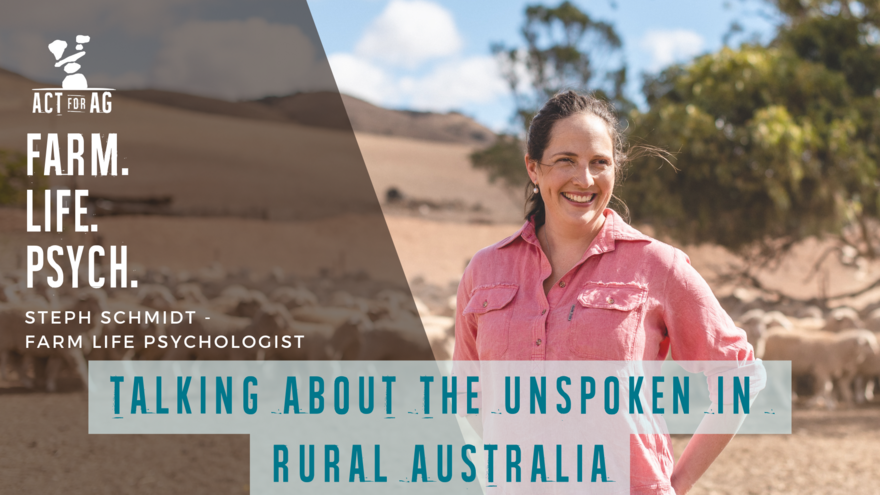Let's talk about alcohol

Alcohol.
How come it is still easier to say yes than it is to say no?
How come we continue to be reluctant or scared to talk about it in the rural mental health space?
Today I want to tackle a topic that hits close to home for many of us in rural Australia: the role of alcohol in our lives. Trailblazers like Shanna Whan and her work at Sober in the Country, and Noelene Brown, Rural Sobriety- are making it #OK2SayNo for all of us. However conversations around alcohol still make us all uneasy. As Shanna has shared countless times, alcohol continues to be a huge, yet often unspoken factor, behind many mental health and physical health challenges in the bush.
The statistics show that people living in regional and remote areas are more likely than their city counterparts to drink daily, and are more likely to drink at a level which puts them at long-term risk of harm (AIHW 2019)
I didn't grow up in the country - yet even for me, drinking alcohol has basically been a given through life.
Growing up, alcohol seemed to be a regular part of every social gathering in my family. Barbecues, dinners, you name it – there was always booze involved. It became ingrained in me that drinking was just something you did to have a good time. My older sister made the choice early on in adulthood not to drink, and I look back and realise that in many ways she was often the "odd one out".
As a teenager and young adult, Thursdays, Fridays, Saturday evenings were generally fairly full of excessive alcohol consumption, dancing and partying. Working in hospitality also meant that after work drinks were the rule rather than the exception.
As I moved to the country, alcohol was always part of our social events - whether it was the races, the pub, or even just bbqs at home - and again, it was generally the rule rather than the exception to drink to excess. It was when you chose not to drink that you were questioned "are you pregnant??"
But let's face it – there are still times when the stress of a tough day makes me want to reach for that glass of wine. It's like a reflex, you know? And it doesn't help that there's this whole "mummy wine culture" that normalizes using alcohol as a coping mechanism. But here's the thing: one drink often leads to another, and it's a slippery slope. I've learned that I don't need alcohol to unwind or deal with my emotions. There are other ways to cope, healthier ways.
Over 9 years of non-drinking through pregnancy and breastfeeding, I had a real opportunity to redefine my relationship with alcohol. And let me tell you, it was eye-opening. I didn't drink during my pregnancies, and while breastfeeding, I kept it to a minimum. And guess what? I learned that I could have a blast at social events, I still had fun, and most importantly, I realized that I am enough without alcohol.
Now that I am no longer breastfeeding and definitely not pregnant, I have now had to make the choice for my own body, rather than due to the consequences on my child. And it is much harder. At home it's been easy to replace my alcoholic "end of the day" drinks with extremely enjoyable non-alcoholic alternatives. However, when I head to social events, work functions, and even mental health functions, it is much harder to say no.
Which makes me realise. If I find it hard to say no at these events, and I don't consider that I "have a problem with alcohol", how incredibly hard is it for those of us in our communities that have realised that not drinking isn't just an option for them, but has to be a necessary choice? How hard is it for those in our communities who are struggling with their mental health and find alcohol to be a helpful short-term solution, but know that in the long term it is doing harm to themselves, their relationships, their families.
What does it mean when there are no easily accessible non-alcoholic alternatives available? What level of discomfort do they feel when drinks are being served at a community or business networking event and it is necessary to make a request for a non-alcoholic option, rather than having non-alcoholic options readily available?
Just recently, I attended an incredible corporate event with over 100 rural Australian leaders and emerging leaders. As we sat down at our tables we were greated with a lush red drink at every seat. I was curious, as were the others at my table. We took a leap of faith and gave it a go. And you know what? It tasted amazing. There was a background taste that made me question if it contained alcohol. However, I couldn't imagine the restaurant serving an alcoholic drink to every single person, without explanation of what it was? It turns out that it was an alcoholic cocktail. At an event the previous night, I found it easy to enjoy sparkling water and non-alcoholic options. However, at this event after drinking the cocktail I found myself saying Yes to another glass of wine.
Now, I know my drinking in this context wasn't problematic. And the drinking of everyone else at the event wasn't problematic. But we don't know what's going on behind the scenes. I'm embarrased to admit that I had made a secret pact with myself that I would try not drinking in the week I was away. Because I know that it is easy to say no at home, and hard to say no when out. And I didn't do it.
How many others end up in that same situation?
I wished there were more non-alcoholic options readily available on the menu. It would have made the experience even more enjoyable and inclusive for everyone.
But here's the thing – making these non-alcoholic options more accessible is crucial. We need to create an environment where it's socially acceptable to say no to alcohol. Imagine going to events, footy clubs, or home barbecues where enticing non-alcoholic drinks are just as appealing as their alcoholic counterparts. Wouldn't that be amazing?
Importantly when we make non-alcoholic drinks available, it's not just about the zero beer and the non-alcoholic G & Ts, because the strong similarity to their alcoholic cousins can make these drinks a slippery slope. There are a number of awesome non-alc alternatives that don't resemble traditional alcoholic drinks - and these are also the ones I would love to see at events and at bars and restaurants. Again, Sober in the Country have us covered with information
So let's start making small changes in rural Australia. Let's advocate for more non-alcoholic options at our favorite hangouts and events. Let's normalise saying no, rather than saying yes.
What are the smallest things you can do as a start?
- Follow the work of Shanna Whan and Sober in the Country, share her videos and stories so we can continue to raise awareness.
-If you are a mental health advocate, speaker, or event organiser - make sure there are AF alternatives, and share feedback if you attend an event that could be done differently


0 comments
Leave a comment
Please log in or register to post a comment